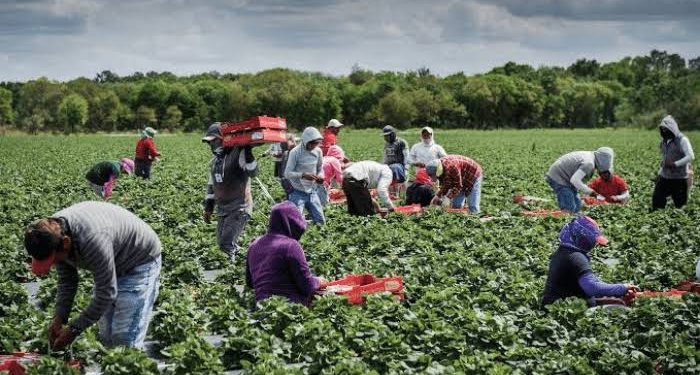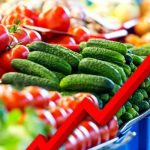A Nigerian agribusiness leader has sounded the alarm over Nigeria’s persistent agricultural trade deficit, revealing that the country recorded a ₦1.037 trillion shortfall in 2023 alone—the fifth consecutive year agricultural imports have outpaced exports.
Speaking at a press conference at the National Assembly, the Managing Director of Davidorlah Farms criticised Nigeria’s increasing reliance on imported processed foods such as wheat, sugar, and concentrates—items he argued can be produced locally. He warned that this pattern undermines national food security and economic diversification goals.
He noted that while oil remains Nigeria’s dominant source of foreign income, agriculture holds untapped potential, especially as Nigeria ranks among the world’s top exporters of cocoa and other key crops. However, he said that limited support and weak infrastructure continue to stifle the sector’s growth.
He emphasized that private firms are increasingly filling critical gaps in agricultural development. His company, Davidorlah Farms, now leads Nigeria’s pineapple production, offering a model that spans from cultivation to the processing of pineapple concentrate for both local consumption and international export.
“By focusing on value-added products, we’re not just feeding Nigerians—we’re opening doors to foreign investment and building agro-industrial capacity,” he said.
He stressed that boosting agricultural exports could reduce Nigeria’s dependence on oil, insulate the economy from global market shocks, and bring in much-needed foreign exchange. He added that these earnings could be reinvested into modern farming tools, road infrastructure, and smarter agricultural systems to raise productivity and farmer incomes.
With Nigeria’s population expected to exceed 250 million by 2050, he called for urgent action to scale local food production. He said that Davidorlah’s structured farming programs are helping to meet rising food demand while promoting food sovereignty.
“Each hectare of land under our model generates employment—from farmers to traders and processors. We are creating thousands of jobs, especially for women and youth in rural areas,” he said.
He also highlighted the company’s Farm Ownership Program, which allows Nigerians to become farm owners, offering a pathway to wealth creation and community development.
He concluded by stressing the importance of aligning Nigeria’s agricultural practices with international quality and logistics standards to tap into global markets and strengthen the naira through export-driven growth.










